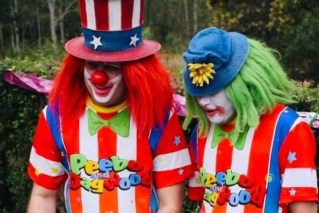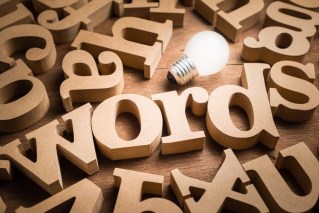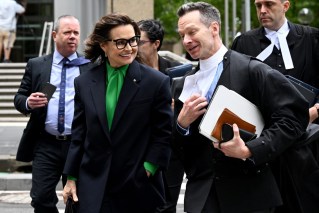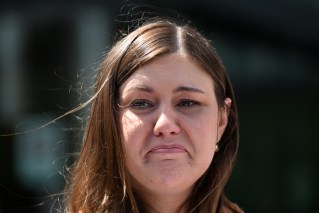Six great reads to devour in the lead up to Election 2022
The year ahead will have what’s being described, yet again, as the most important election in the modern era. With this in mind, Dennis Atkins has a guide to the best political reading from the last 12 months and a couple of reliable favourites worth revisiting.

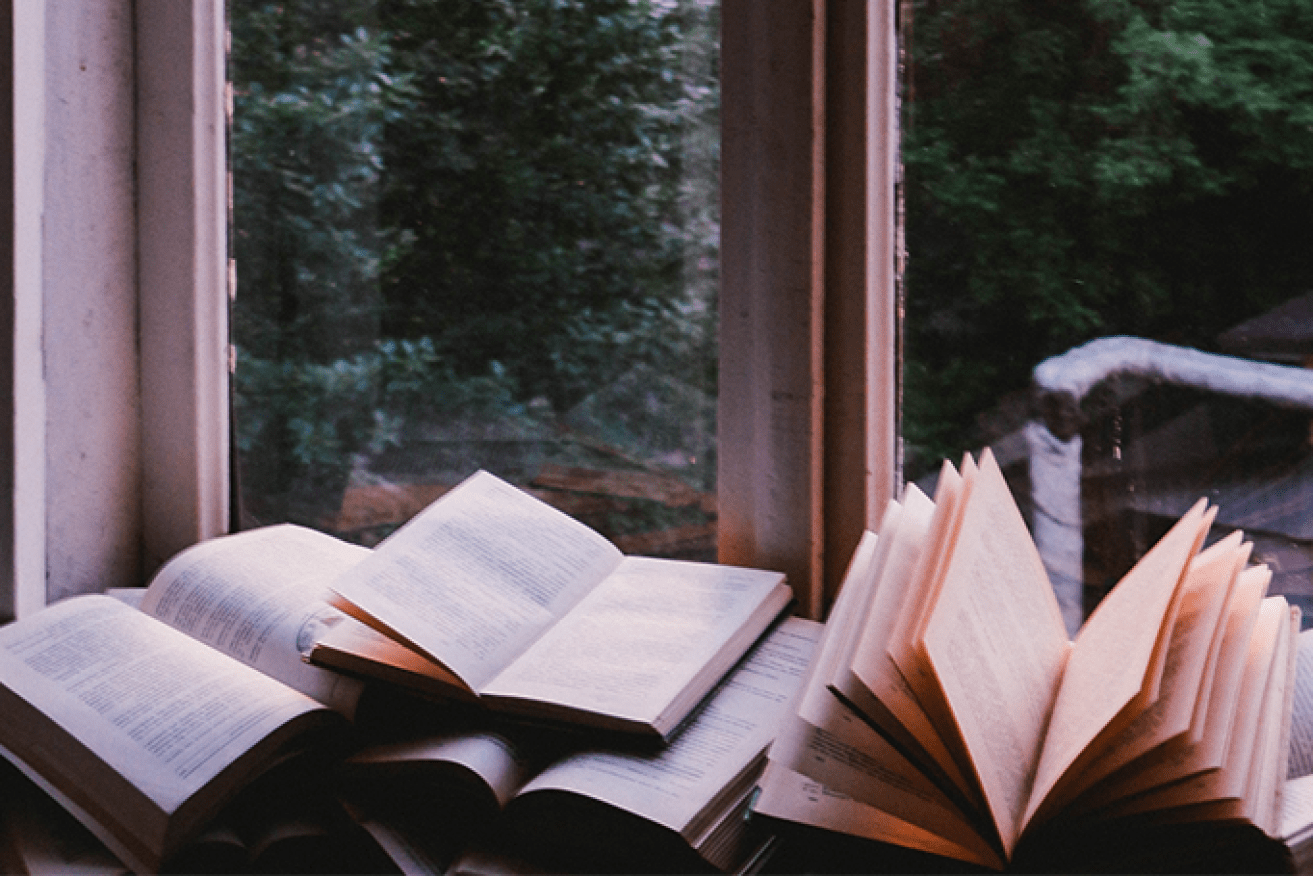
(Image: unsplash/ John-Mark Smith @mrrrk_smith)
It’s impossible to reflect on non-fiction reading in 2020 without getting into the greatest stories of the modern era: the Presidency of Donald J. Trump and the Sars-Cov-2 novel coronavirus.
Both are still playing out but a few books so far stand out as excellent guides and insights into what have been world shaking phenomenons.
Two books offered alternate ways into the final days of Trump’s time in the White House.
Washington Post reporters Carol Leonnig and Philip Rucker used a phrase of the former Republican President to stamp their look at the man’s extraordinary last year, I Alone Can Fix This (just as they did with a previous Trump history draft Very Stable Genius).
It’s a top shelf piece of reporting, using dozens of primary sources and a level-headed ability to make a patchwork out sometimes seemingly impossible to discern scraps. The chapters on how Trump tried to overturn the democratic decision from November, 2020 – using lawyers like Rudy Giuliani and Sidney Powell (one drunk, the other completely nuts) – are stranger than fiction.
As much as the Leonnig and Rucker book is straight-laced journalism, Michael Wolff’s Landslide is gonzo rock’n’roll, taking some stiff drinks from the new wave reporting school of Hunter S. Thompson and Tom Wolfe.
Wolff’s third book on Trump – with stunning, in-the-room quotes from Trump himself and everyone else in the West Wing and nearby – is the best by far. He has details on what people were “stuffing in their mouths” as they tried to avoid talking about the president’s madcap schemes (platters of meatballs and pigs in a blanket) and hilarious descriptions of Giuliani’s relentless and foul farting.
Throughout both books, a picture of a grifting machine’s capture and corruption of American democracy is chilling and mesmerising.
The pandemic is slower to emerge in serious instant history but British academic Adam Tooze has pulled together a brilliant, follow-the-breadcrumbs, back-to-the-beginning account of how the globe stopping events emerged, unfolded and are sitting today, tenuously facing the years ahead.
Shutdown is similar in style and intent to Tooze’s volume on the 2008 financial crisis, Crashed. In some ways it’s a complementary volume which might hint the next should be about the climate catastrophe.
Tooze has an historian’s eye for detail and the steady mind of someone who thinks in epochs and not internet clicks.
Just as that first book looked at the events through the power blocs of Europe, the USA and China, this pandemic history also uses widening perspective – from the global in March 2020 to what’s happened in the White House, Downing Street and Beijing in the months following – to rebuild the puzzle that was shaken up every time we thought it was coming into focus.
It’s a masterful work and will remain a first port-of-call reference point for anyone thinking or writing about the last two years.
What could be the best books on the vaccine story have only recently emerged – an acclaimed volume, The First Shots by journalist Brendan Borrell and another with rave reviews, A Shot to Save the World by Gregory Zuzkerman from The Wall Street Journal.
Another great political story – now so long ago but still as eye-popping in many ways as anything from contemporary life – is the life of John Fitzgerald Kennedy, the self-styled war hero and coddled son of one of America’s richest families.
Fredrik Logevall has dropped a supernova of biography, simply titled JFK: Volume One. It clocks in at 792 pages, with endnotes and the index, but 647 of those are an action packed, no detail missing account of Kennedy’s personal and early political life.
Logevall, a Harvard University professor and winner of a Pulitzer Prize for a volume on the US and Vietnam, has approached his task to map and explain one of the great political stories of the 20th Century with a careful consideration and deep insight not dissimilar to the Titan of Biography, Robert Caro, who is still finishing the last of five volumes on Lyndon Baines Johnson.
It will stand in the first class of American presidential biography and the second volume, which will chart JFK’s election and all too brief time in office, is eagerly awaited.
For the moment we’re content with scintillating detail such as the time JFK sought out “female companionship” for his father, business giant and one time ambassador Joseph Patrick Kennedy, in a Washington bar, in company with his brothers Teddy and Bobbie.
Three power list political sons pimping for their tycoon daddy. What would the tabloids say today?
With a federal election just around the corner, it was refreshing to reread some basic primers, starting with an often neglected modern must-read, The Victory Lab: The Secret Science of Winning Campaigns.
Washington journalist for Bloomberg Politics and Monocle magazine Sasha Issenberg lifts the hood on the new campaign operating system which is as different to the 1990s model as the Tesla is to a Holden.
The new thinkers, internet savvy and carrying enough tech weaponry to transform a state the size of California, can find voters with terrifying precision and send messages that are geolocated and demographically itemised.
This is the kind of campaigning Barack Obama used in 2008, switching on the Voter Activation Network, an internet device that matched voter segments to preferences of all kinds, cross-referenced with locations and targeted with an accuracy the Pentagon would envy.
One of Obama’s top operators David Plouffe used this data – which he gathered from a series of notes, equations and jottings he carried around in what he referred to as his “Bible” – to have an estimation of how big Obama’s vote would be in each and every battleground state in November 2008. It was mind-snappingly accurate.
Plouffe went on to work for Facebook where he said the algorithms would soon exist to send micro-messages to different people on a single bus or train – or just walking together down a particular street. That was five years ago, so we can assume it’s happened.
Australian political parties are not this sophisticated in their tech knowledge or capability but you can rest assured they have a degree of this operability and they’ll use it.
Issenberg’ s book is essential for those who want to understand just what is possible in modern politics.
Another book to seek out is Political Fictions by the unparalleled American essayist Joan Didion, who sadly died last week.
The highlight is her 1988 genuine game changer, Insider Baseball, first published in The New York Review of Books.
This unique essay exposes the hollowness of so much modern political reporting and analysis (yes, it was brutal to read) using a comparison with the way journalists cover a presidential campaign (in this case that of Democrat Michael Dukakis to other set piece styles of reportage such as big league sports.
“It is understood this invented narrative will turn on certain familiar elements,” writes Didion. “There is the continuing story line of the ‘horse race’, the reliable daily drama of one candidate falling behind as another pulls ahead.
“There is the surprise of the new poll, the glamour of the one-on-one colloquy on the midnight plane, a pilot point (the nation sleeps as the candidate and his confidante hammer out its fate).
“There is the abiding if unexamined faith in the campaign as a personal odyssey, and in the spiritual benefits accruing to those who undertake it.
“There is, in the presented history of the candidate, the crucible event, the day that ‘changed the life’.”
Remember all this as the great contest of 2022 rolls around. Read some of these books over summer and you might not know who’s going to win but you’ll view things with clearer eyes.
I Alone Can Fix This, Carol Leonnig and Philip Rucker (Bloomsbury)
Landslide, Michael Wolff (The Bridge Street Press)
Shutdown: How Covid Shook the World’s Economy, Adam Tooze (Allen Lane)
JFK Volume 1, Fredrik Logevall (Penguin)
The Victory Lab: The Secret Science of Winning Campaigns, Sasha Issenberg (Broadway Books)
Political Fictions, Joan Didion (Vintage)

